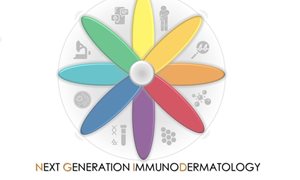
Ruben Smeets, theme Inflammatory diseases, and colleagues published in Autoimmunity their data which showed high concordance of prevalent systemic sclerosis (SSc)-specific autoantibodies between different diagnostic assays. Further standardisation for low prevalent SSc-specific and SSc-associated autoantibodies is needed.
Objectives
Autoimmune antibody profiling plays a prominent role in both classification and prognosis of SSc. In the last years novel autoantibodies have been discovered and have become available in diagnostic assays. However, standardization in autoimmune serology is lacking, which may have a negative impact on the added value of autoantibodies in diagnosis and prognosis of SSc. In this paper we describe the comparison of commercially available diagnostic assays for the detection of SSc-associated autoantibodies and explored the coexistence of multiple SSc-associated autoantibodies within patients.
Methods
Serum samples of 347 patients from the Nijmegen Systemic Sclerosis Cohort were included in this study. All patients fulfilled the ACR/EULAR 2013 classification criteria for SSc and were classified as DcSSc or LcSSc according to the Leroy and Medsger criteria. All samples were evaluated on standard laboratory diagnostic tests for detection of SSc-specific autoantibodies CENPA and CENPB (ACA), Scl-70 (ATA), RNA Polymerase III (rp11/155) (ARA), and SSc-associated autoantibodies Fibrillarin, Th-To, PM-scl75, PM-Scl100, RNP68/A/C, Ku, NOR90, and PDGFR from suppliers EUROIMMUN, D-tek and Thermo Fisher Scientific.
Results
We found that 79% of the patients was positive for one or more of the SSc autoantibodies. Overall, a high agreement was observed between the diagnostic methods for the SSC-specific autoantibodies listed in the ACR/EULAR criteria (ATA, ACA, and ARA) (Cohen's kappa 0.53-0.97). However, a lower agreement was found for SSc-associated autoantibodies PM-Scl, and Ku, as well as for the SSc-specific autoantibodies fibrillarin and Th-To. Furthermore, the data revealed that the presence of ATA, ARA and ACA is predominantly mutually exclusive, with only a fraction of the patients testing positive for both ATA and ARA.

Fig. Autoantibodies and association with pathophysiological profiles in Scleroderma
Related news items

Joyce Aarts and colleagues published in Scientific Reports about the role of TGF-β1 in (experimental) arthritis
30 March 2022Joyce Aarts, theme Inflammatory diseases, and her colleagues published in Scientific Reports, that local inhibition of TGF-β1 signaling improves Th17/Treg balance but not joint pathology during experimental arthritis.
read more
Large NWA ORC grant awarded for national skin research: Next Generation ImmunoDermatology
23 March 2022Research for better treatment methods for chronic skin diseases.
read more
NWO OTP grant to investigate fibrotic diseases with organ-on-a-chip technology
22 December 2021 Wouter Verdurmen & Peter van der Kraan have been awarded with a grant by the Netherlands Organisation for Scientific Research (NWO-OTP) to develop and employ innovative organ-on-a-chip models to investigate fibrotic diseases, with a particular focus on systemic sclerosis. read more
RIMLS awards call for nominations
19 October 2021 RIMLS awards several prizes to stimulate and honor our (young) researchers. Upcoming awards are Supervisor of the Year, Best Master Thesis, Best Publication, Best Image and more. Send your nominations now before 24 November 2021. read more
Best presentation award for Felicitas Pardow at the European Epidermal Barrier Research Network
28 September 2021 During the annual meeting of the European Epidermal Barrier Research Network (E2BRN) recently, Felicitas Pardow received the best presentation award. read more
